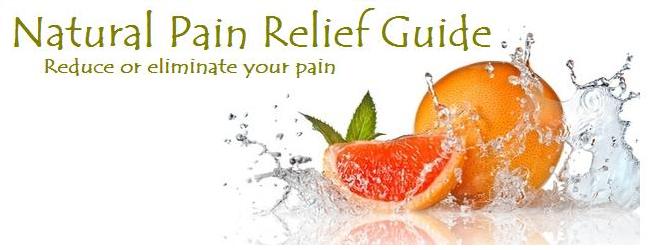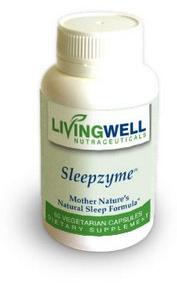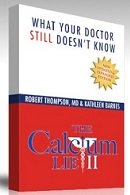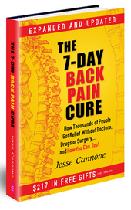 |
||||||||||||||||||||||||||||||||||||||||||||||||||
Just can't sleep? Insomnia is a big problem. Recent U.S. data indicates that 3.3 million people each year visit their doctors because they just can't sleep. As many as 34% of Americans over age 65 have this difficulty. On this page, you will find a number of natural sleep aids to help you sleep better. See the great FREE PRODUCT OFFER at the bottom of this page.
|
||||||||||||||||||||||||||||||||||||||||||||||||||
| barley | 378 |
| banana | 460 |
| tomatoes | 500 |
| ginger | 583 |
| rice | 1006 |
| corn | 1366 |
| oats | 1796 |
Vitamin B6 is also needed to make tryptophan from serotonin. Vitamin B6 is found in (mg/100 g):
whole milk 46 blackeyed cowpeas 267 black walnuts 290 almonds 322 sesame seeds 358 gluten flour 510 pumpkin seeds 578 tofu 747
Calcium is also needed for melatonin production. A generally lower food intake helps maintain melatonin production. Factors that reduce melatonin levels include:
lima beans 0.51 lentils 0.54 English walnuts 0.56 banana 0.58 sesame seeds 0.79 sunflower seeds 0.81 artichoke hearts 0.94 bell pepper 2.22
- stress
- caffeine
- alcohol
- tobacco
Some foods are high in tyramine which increases release of norepinephrine, a brain stimulant.
Tips for a Good Sleep
If it seems you just can't sleep or can't get a good sleep, go through the list below and try following one or two new tips each day so that you can see what makes the most difference for you.
General
Even if you think you can't sleep, try to avoid sleeping pills. One problem with them is that they result in what is known as "REM withdrawal sleep." Of course, people taking them sleep but the lack of the very necessary REM sleep leaves them feeling generally worse and they may become more convinced that they need the medications to help with sleep so they keep taking them, making the problem worse.
Lose weight if you need to. Being overweight increases the risk of sleep apnea. People with sleep apnea may awaken often and find it very hard to get a good night's sleep.
Exposure to bright lights in the morning was found by researchers at the National Institute of Mental Health to help insomniacs regulate their circadian rhythms or "body clocks."
Avoid foods that you may be sensitive to especially dairy and wheat products, as they may have effect on sleep, such as causing apnea, excess congestion, gastrointestinal upset or gas.
Get enough B vitamins in your diet. Niacin(B3) is needed for the synthesis of serotonin a neurotransmitter that induces sleep and helps prevents you from waking.
Have your adrenals checked. If you can't sleep it may be caused by adrenal stress.
If you are menopausal or perimenopausal, get checked out by a good natural medicine physician. The hormonal changes at this time may cause problems if not properly addressed.
You should go to bed, and wake up, at the same times each day, even on the weekends. This helps your body get into sleep mode and makes it easier to get up in the morning.
Do not use your bedroom as an office.
Certain herbal teas can help. Two of the best are hops and chamomile. Others are catnip, lady's slipper, yarrow and mullein. There are many other
herbal and aromatherapy solutions for insomnia that can help you get a great eight.
Magnesium helps relieve tiredness and improve sleep quality. It is found in green vegetables, avocado, bananas, peanut butter, and nuts.
Complex carbohydrates and a high-fiber diet help maintain steadier glucose levels, important to avoid blood glucose levels dropping to much during the night. If it does our brain gets the message that it is time to eat.
During the Day
Exercising for at least 30 minutes everyday can help you fall asleep. However, don't exercise too close to bedtime or you will find that you can't sleep. The brain compensates for physical activity by shortening the lighter stages of sleep and prolonging deep sleep. You sleep much more soundly and deeply after exercising.
Don't nap during the day.
Get day-time exposure to bright light, preferably natural daylight
Exercise in the afternoon or early evening, but no later than three hours before bedtime.
Foods containing L-tryptophan help produce melatonin and serotonin.
Avoid prescription or other drugs. Many contain caffeine and may effect sleep.
Make your evening meal the smallest of the day.
In the evening, avoid foods that trigger the secretion of brain-stimulating hormones. The most common are: ham, bacon, sausage, cheese, chocolate, and wine.
Before Bed-Time
A warm bath decreases the time taken to fall asleep and prolongs the duration of deep sleep. Do not have this bath within one hour of bedtime as it raises body temperature and you may find you can't sleep until your temperature drops somewhat.
Put your work away at an one hour or more before bedtime.
Don't over-eat, and don't eat within 2-3 hours of bedtime.
Have no coffee, alcohol or cigarettes two to three hours before bedtime. Alcohol inhibits the deeper stages of sleep.
Wind down 90 minutes before bedtime.
Spend time planning your next day.
Listen to calming music before bedtime.
Stay away from anxiety provoking activities or thoughts near bedtime.
Don't drink any fluids within 2 hours of going to bed.
Go to the bathroom right before bed.
In Bed
No watching TV. you may find your brain is stimulated to the point you can't sleep.
Do breathing or muscle-relaxing exercises.
Have your room cool, ideally 16-18 degrees C (60-65 F)
Don't count sheep, counting is stimulating.
Listen to white noise or relaxing music to mask distracting sounds.
Avoid bed time snacks. Grains and sugars especially raise blood sugar and inhibit sleep.
Keep your bedroom as dark as possible. Even dim light disrupts your circadian rhythm and production of melatonin and seratonin. Wear a sleep mask if needed.
If your bedroom is especially cold, wear socks to bed. Your feet have the poorest circulation and if they feel cold you may find you can't sleep until your are warm again.
Read something relaxing. Stimulating material may keep you awake.
Avoid loud alarm clocks as this is a stressful way to wake up.
Electro-magnetic fields (EMFs) can disrupt the pineal gland and the production of melatonin and seratonin. Stay away from electrical devices especially electric blankets.
Keep a notepad by your bed so if you think of something that you really want to remember the next day you can jot it down rather than lying awake thinking about it and hoping you will remember. Some people use a small voice recorder if it won't disturb anyone else.
If you can't sleep after 15-20 minutes, get up and do something relaxing.
Here is an exercise to help with sleep. Lying on your back, tense each muscle group for a few minutes, then relax them. You might take up to 45 minutes in total. You will get the benefit of some exercise but also the contrast between tension and relaxation makes it more obvious when you are relaxing and helps you be able to relax better.
If You Wake Up at Night
If you have bad dreams or nightmares think of something else to distract the mind.
If you can't sleep again within 30 minutes, get up and do something else. Nothing that will get you thinking too much - perhaps read a boring book.
If you wake up and it is only a short time before you should be getting up anyway you might be better to get up than to try to go back to sleep. This is because we sleep in cycles of about one hour and if you wake up in the middle of a cycle you may not feel as well rested.
Having Chronic Problems with Insomnia?
If you are, then it is important for you to investigate more carefully how a better sleep can lead to a better life. Getting a good sleep on a regular basis is just too important for your good health to ignore.
To understand how serious a problem insomnia is, watch this video about The Consequences of Insomnia:
Composure is a good, inexpensive and natural product that can help you cope with stress and thus sleep better.

FREE E-book: Sleep Like a Baby
($19.95 value)
This Special Bonus Health Report was created by the folks at www.losethebackpain.com.
They have extended me permission to give it away as a free bonus to people visiting my site.
Download free "Sleep Like a Baby" report (pdf-file)
Read and enjoy and then also take advantage of this additional special offer:

Now You Can Finally Get
A Good Night's Sleep...
And Without The Risks of
Addictive Prescription Drugs.
sleep hormone described earlier on this page.
|
Keep up to date with valuable insights into pain management via a healthy lifestyle. Receive the monthly Natural Pain Relief Guide Newsletter. News articles, health tips, specials, freebies. Enter your email and name in the form to the right. |
Relieve your pain - approved medical device increases circulation and healing.
The contents of this site are intended for educational and information purposes only.
You have a right (and a responsibility) to educate yourself regarding health matters.
The information presented here is not meant to diagnose, prevent, mitigate, treat, or
cure any disease. If you have health concerns, consult a nutritionally-oriented health
professional and take responsibility to become educated in caring for your own health.








New! Comments
Have your say about what you just read! Leave me a comment in the box below.